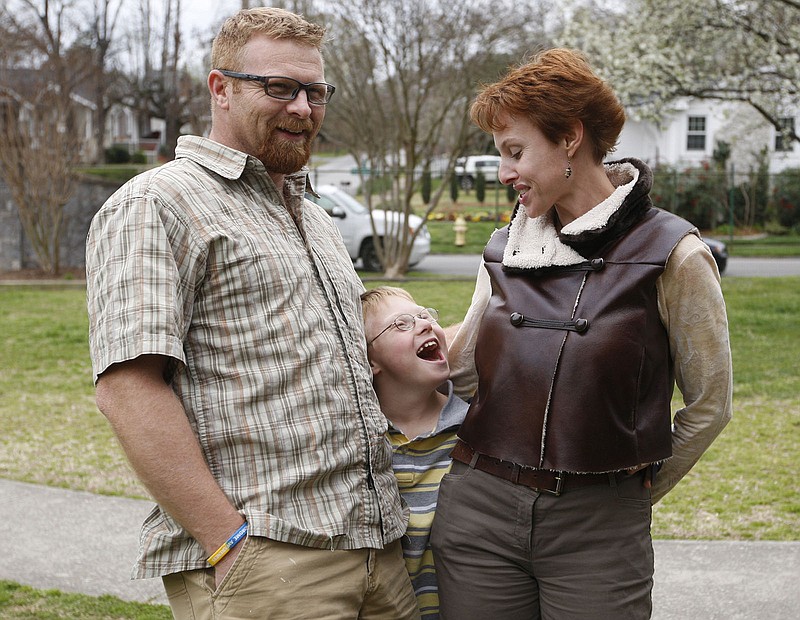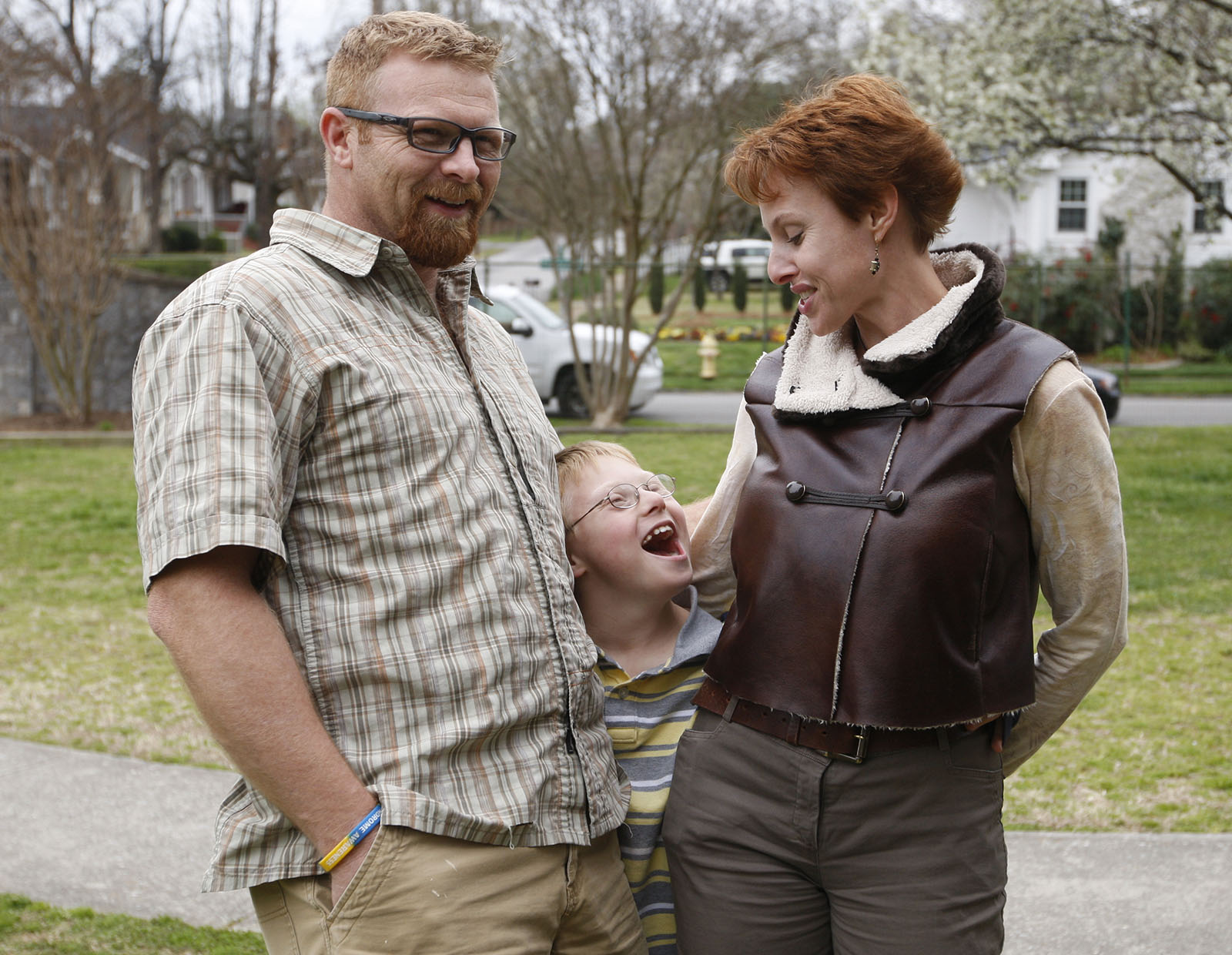Before each orthodontist appointment, Luka Hyde lets a different girl at school pick out the color of the rubber bands he'll get on his braces.
On his last visit, he got red - the same color as his glasses.
It's the little things like this, and his crushes on girls and his obsession with country music, that make him a lot like most 12-year-old boys.
And Luka's parents have been advocating for years that he deserves an education like everybody else, saying his Down syndrome should not prevent him from learning in a general education classroom.
Deborah and Greg Hyde filed a lawsuit against the Hamilton County Department of Education and the Tennessee Department of Education last year after being told their son would be removed from his class at Normal Park Museum Magnet and placed in a special education class at Red Bank Elementary.
On Tuesday, a settlement for $185,000 between the Hydes and the state was approved by Magistrate Judge Susan K. Lee. It is expected to be formally approved by the court in the next couple of weeks.
If approved, the Hydes plan to set aside a large portion of the money for Luka's college fund. They want their son to have every opportunity, and they plan to make it possible for him to receive a postsecondary education at Vanderbilt University's Next Steps program for students with disabilities.
"We knew if he was segregated [in a special ed class] what would happen," Deborah Hyde said. "He'd get farther behind and age out of the [school system] and be completely dependent. We want more for him."
The state's decision to settle does not impact the lawsuit still pending against Hamilton County, a separate defendant in the case. The state's settlement follows a previous ruling that found the state did not have an adequate administrative complaint process for parents, which is required by federal law.
Hamilton County Schools attorney Scott Bennett said the state settled because it recognized its own administrative complaint process did not meet the court's standards.
"The state's decision to settle has nothing to do with the plaintiff's claims against Hamilton County," Bennett said.
Before filing the federal lawsuit, the Hydes filed a due-process claim with an administrative law court in late 2013, accusing the school system of violating federal disability law. They argued that Hamilton County's decision to move Luka into a comprehensive development classroom, a separate classroom for students with more intensive needs at Red Bank, was preventing him from receiving an education in "the least restrictive environment," which the law requires.
Deborah Hyde said she feared her son's placement in such a classroom would prevent him from making academic progress. She called the requirement to move her son an act of segregation and wanted him to continue learning in a regular classroom.
But school officials said Luka was unable to keep up with the regular curriculum, even with an array of modifications and support, including a special education teacher and a one-on-one assistant.
"I think at this point the gap is too large," Luka's teacher at Normal Park testified at the due-process hearing.
Margaret Abernathy, exceptional education director for Hamilton County Schools, said Tuesday that every child who meets state and federal eligibility for an Individualized Education Program goes through an extensive assessment to determine what is best for them. She said a "team decision" is made that includes the opinion of teachers, school administrators and the student's family.
Abernathy said "99.9 percent of the time, we [all] reach agreement." She continued to say, "I think all of our decisions are good decisions, and parents have the right to disagree, and they have a due-process method."
In this due-process proceeding, a judge ruled in December 2013 in favor of Hamilton County, saying the Hydes failed to substantiate their claims that the school system didn't implement their son's Individualized Education Program.
Following that ruling, the Hydes decided to sell their house to be able to hire Justin Gilbert, a partner at Gilbert Russell McWherter, a law firm specializing in employment and insurance law, to file a federal lawsuit.
Gilbert said he'd heard about the Hyde's administrative court hearing and was interested in the case. He attended the hearing where the Hydes represented themselves, and he knew he wanted to get involved in the case.
"We can't guarantee any child a particular outcome. But we must work to guarantee every child an equal opportunity," Gilbert said. "At its core, that's what the case is about."
Since being told Luka could not continue at Normal Park, the Hydes have paid to send him to the Montessori School. There, in a general education classroom, the Hydes say Luka is thriving in both academics and social development.
Greg Hyde said even if the family didn't get a penny from the lawsuit, it'd be worth it.
"Someone needed to advocate for these kids," he said, squeezing his wife's hand.
During the back-and-forth of the hearing Tuesday, Luka sat cross-legged in a big green chair next to Deborah. Offering an occasional yawn, he quietly leaned his chin on his fists and looked around.
Later, in the long, echoing hallway of the courthouse after the hearing, Luka looked up at his mother and asked, "Am I going back to school today?"
Contact staff writer Kendi Anderson at kendi.anderson@timesfreepress.com or 423-757-6592. Follow on twitter @kendi_and.

